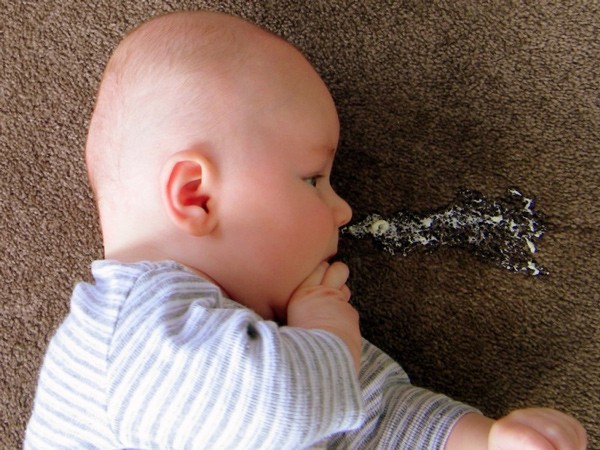Doctor Pediatric: 6 manifestations that can warn brain tumors in children but easily mistake them for "petty disease"
Clinical symptoms of brain tumors are often overlooked by parents, delaying the best treatment for a child and increase the difficulty of treatment.
Dr. Ma Kiet - Head of Pediatric Neurosurgery Department, Xinhua Hospital, Shanghai Jiaotong University, listed six early warning signs for brain tumors in children.

1. Vomiting
Children who vomit are not necessarily the result of a gastrointestinal problem. Vomiting is the most common manifestation of brain tumor occurrence in children, accounting for about 80%. Vomiting due to brain tumors mainly occurs in the early morning, but it can appear at any time when the disease progresses, indicating intermittent and repetitive attacks.
Most children with vomiting experience a headache, dizziness or vomiting before the headache. In addition, some children with vomiting are often accompanied by abdominal pain, which often leads parents to mistakenly think that a child has a gastrointestinal problem.
Therefore, when a child has an unexplained vomiting, parents should be alert to the presence of a brain tumor and promptly take the child to a doctor for brain CT and MRI exams.

2. Headache
Some children do not exhibit headaches correctly, especially young children. Older children may talk about their headaches, but babies and young children are often overlooked because they cannot describe the pain.
Parents should pay attention when children are restless, repeatedly tapping their head with their hands or scratching their hair and crying. This may be a special way to express a child's headache.
Headaches in adults are common, but most of them are normal headaches while headaches in children are more likely to be related to internal damage. Therefore, if children see symptoms of headaches, parents should not ignore brain tumor.

3. Vision loss
A child's loss of vision is not necessarily myopia. In children with brain tumors, vision loss is also relatively common, mainly secondary atrophy and a small number of tumors directly compressing the optic nerve.
When a child's vision is impaired without a clear reason for eliminating nearsightedness, parents also need to be careful about the "bomb" of the tumor in the child's brain. Because if the diagnosis and treatment time is late, the optic nerve will be severely atrophic, leading to blindness.

4. Head circumference increased
A marked increase in a child's head circumference is not necessarily a sign of high IQ. Some parents think that the bigger the head of a child is, the smarter. However this is not scientific.
Normal head circumference is 32-34cm at birth, head circumference is about 46cm at 1 year old, head circumference is about 48cm at 2 years old, head circumference is only 6-7cm at 2-15 years old.
Brain tumors can lead to increased intracranial pressure, which causes the skulls to expand, the fontanel to expand, the scalp to stretch, to dilate the veins under the scalp, to see the patient's eyes at the position where they look down.
Therefore, when it is found that the circumference of a child is significantly larger than that of children of the same age, parents should pay attention.

5. Constant thirst
Some children with brain tumors are often hungry, their appetite increases, the amount of meals can even be equal to that of adults, and are often eager for water.
Parents may think that it is just a normal manifestation of a child's growth and development but should still be alert if they suddenly crave for food, abnormal thirst.
Because brain tumors such as germ cell tumors develop in the intracranial control of children often lead to endocrine dysfunction in children, leading to primary polycythemia and polyuria.

6. Puberty early
Early puberty is not necessarily due to a brain tumor. Because excessive nutritional supplementation for children and some foods mixed with hormones can cause early development of children is no longer an anomaly.
However, early puberty in children can be a warning sign of invasive brain tumor. For example, cranial tumors, hypothalamus, genital teratomas and pituitary tumors can all cause abnormal growth and development in children, precocious puberty or growth retardation.
VACXIN VIETNAM JOINT STOCK COMPANY
Certificate of Business Registration No. 0107631488 by the Department of Planning and Investment City. Hanoi issued on 11/11/2016
Address: 180 Truong Chinh, Khuong Thuong Ward, Dong Da District, City. Hanoi
Mail: info@mode.edu.vn
Hotline: 028 7300 6595
Working time: From Monday to Sunday
From 7:30 - 17:00 (no lunch break)
117-119 Ly Chinh Thang, Ward 7, District 3, City. Ho Chi Minh